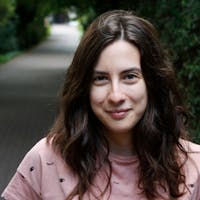Originally from Madrid, Dr. Aurora Torres is a Reserach Fellow at The German Centre for Integrative Biodiversity Research (iDiv) and Martin Luther University Halle-Wittenberg (MLU). She earned her BSc in Environmental Sciences (2008) from the Universidad Autónoma de Madrid, where her work focused on catalysts for removing phenol in wastewater at the Institute of Catalysis and Petrochemistry (Spanish Council for Scientific Research, ICP-CSIC). She earned her Msc (2010) and PhD in Ecology (2016) from the Universidad Autónoma de Madrid, where her research program centered on assessing the impacts of intensive land-uses – namely urban sprawl, infrastructure development, and agricultural intensification – on wildlife populations and landscapes at Museo Nacional de Ciencias Natuales (Spanish Council for Scientific Research, MNCN-CSIC).
Dr Torres is an early-career ecologist with a novel scientific profile at the interface of ecology, conservation and sustainability. Her research has a true trans-disciplinary character (in the sense of problem-orientation to real-world problems and cross-disciplinary choice and adaptation of methods). At present, she is project manager and research fellow at iDiv/MLU in a science-policy project that focuses on strengthening the EU ecological restoration agenda with a perspective of rewilding to create a coherent ecological network in Europe and meet the 15% restoration target of the EU 2020 Biodiversity Strategy.
In addition, since July 2015 she leads and coordinates a pioneer working group with scientists from Michigan State University, Boise State University and Georgia University that aims at providing an integrative perspective on the global sand use and the long-distance environmental and socio-economic interactions (telecouplings) between sand extraction and consumption. This research bridges gaps between different research fields from social to natural sciences and the team is open to considering new collaborations, as well as to engage with policy-makers and practitioners.





